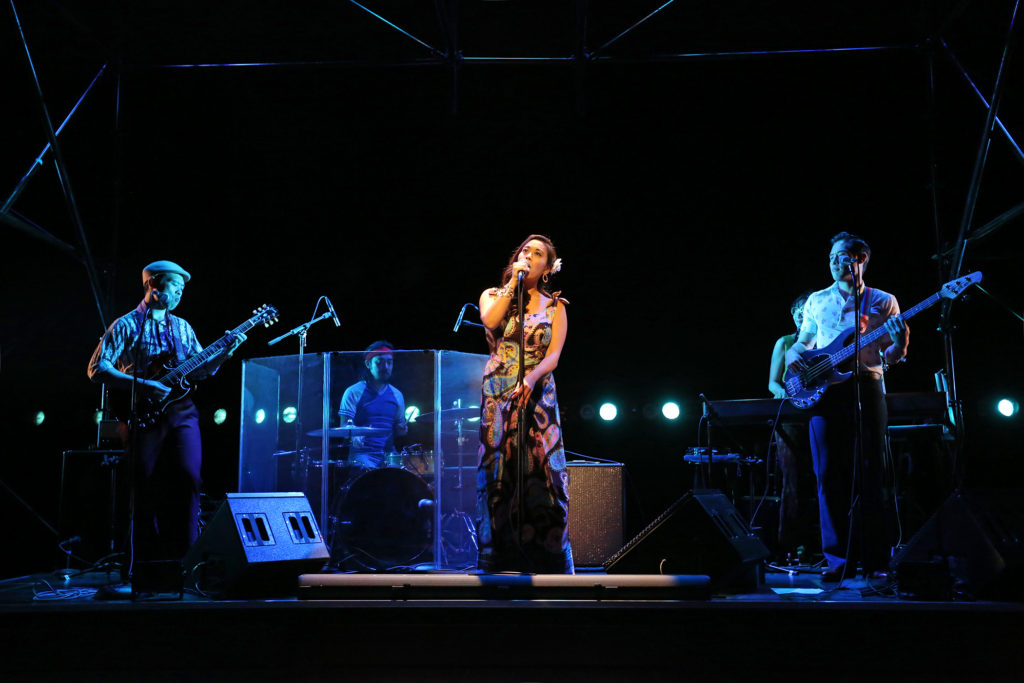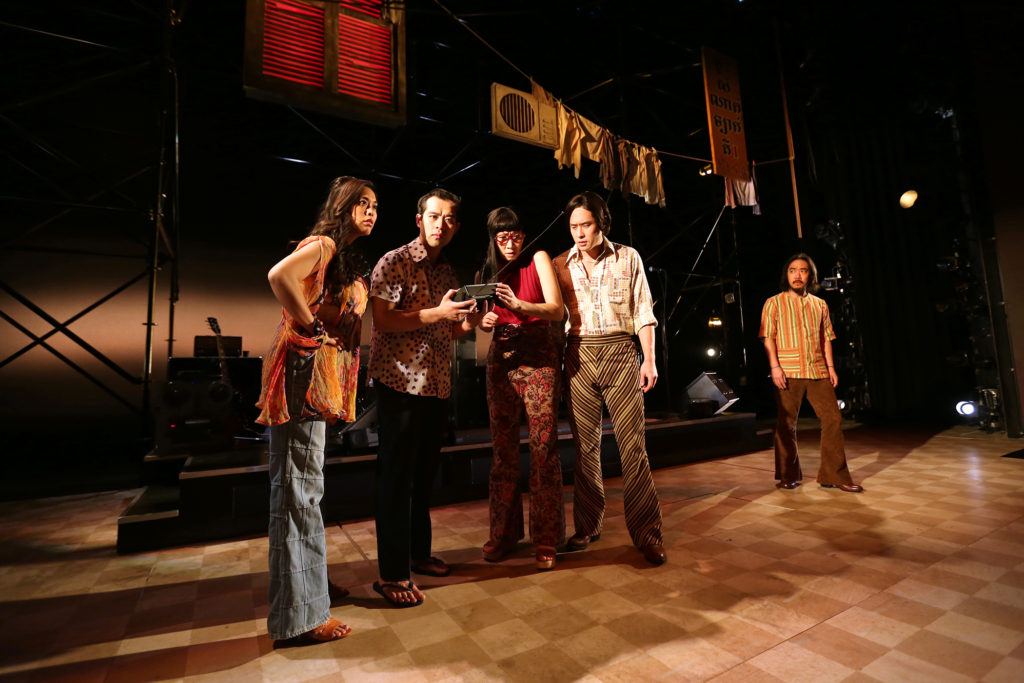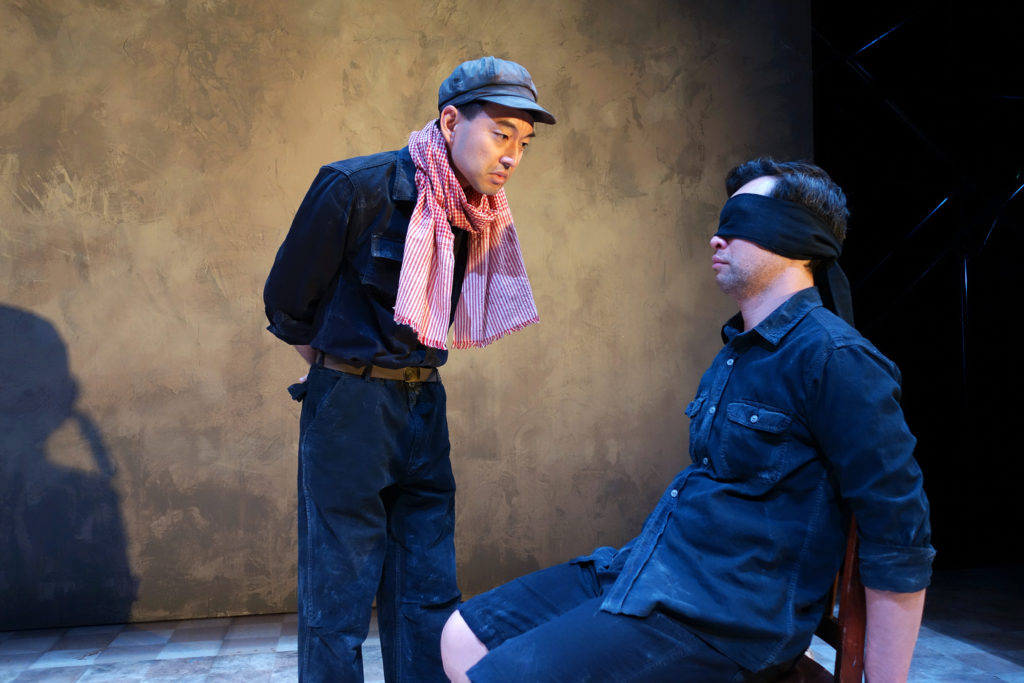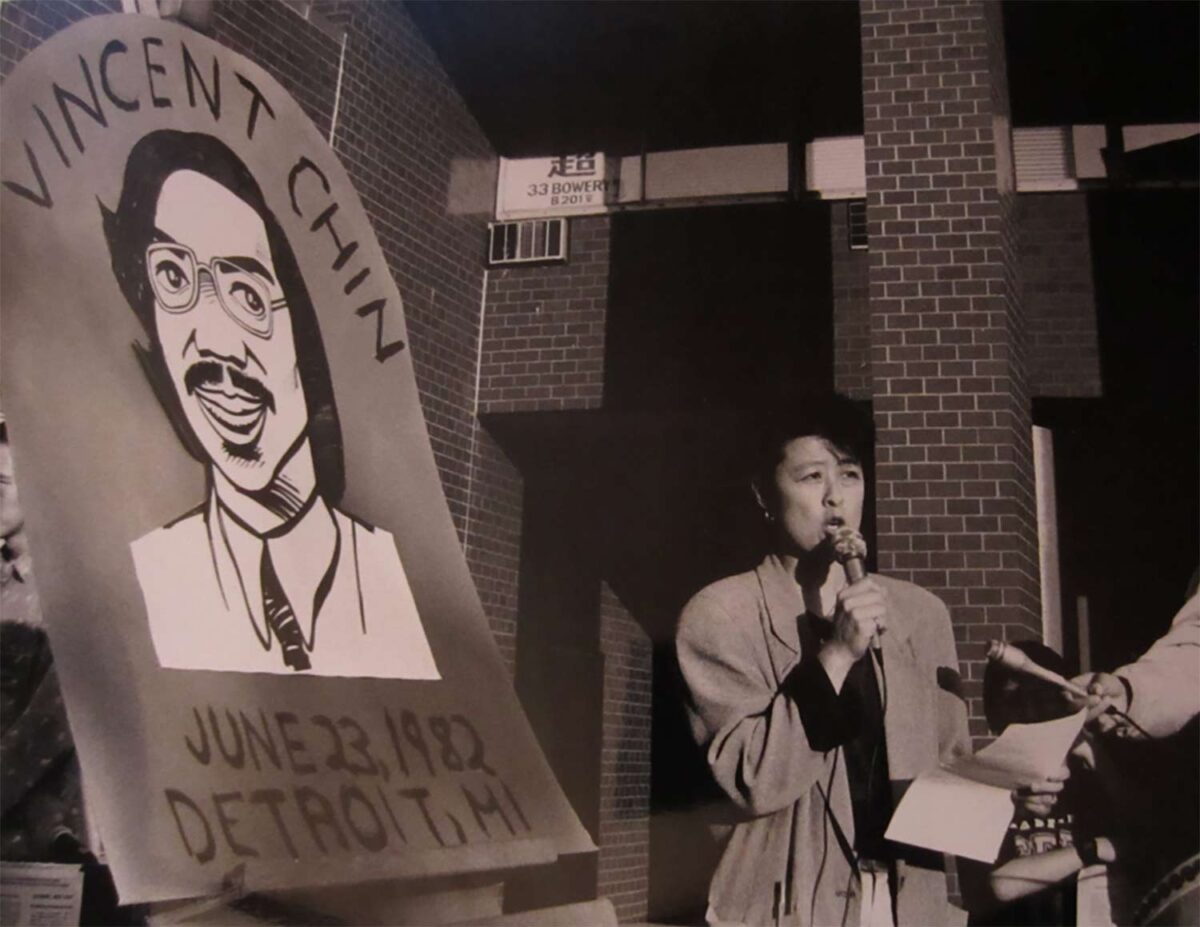
Many of us are the second-generation children of immigrants who survived periods of instability such as the Vietnam War, the Korean War, and the Cultural Revolution. And yet, for some of us, the familial stories of that trauma are largely unknown – erased by violence or buried in silence by emotional and psychological trauma.
And so, even as our fingers trace the scars left upon our families, we feel an emotional distance from the periods of violence that reshaped the courses of our families’ history. We know the facts as one might read a description in a textbook. We ponder the blurred faces of people whose names we might (or might not) know memorialized in black-and-white snapshots by unseen photographers. We feel the aching silence of our parents and grandparents who speak volumes in what they do not — and what they cannot — say.
We wonder what we have gained by our not-knowing and our not-speaking; but also, what we may have lost.
Playwright Lauren Yee beautifully captures these complex dynamics in her stunning new play, Cambodian Rock Band, currently in its debut run through to March 25 at the South Coast Repertory Theater in Costa Mesa, California.

Intrigued by the music of contemporary Khmer American surf rock band Dengue Fever, Yee researched the dynamic and effervescent Khmer music scene of the 1960’s and 1970’s that inspired Dengue Fever’s sound. Yee also learned how after the fall of Phnom Penh in 1975, many Lhmer musicians and artists were killed by the Khmer Rouge regime. Based on this research, Yee wrote Cambodian Rock Band, which seamlessly integrates the music of Dengue Fever into an intergenerational drama of trauma and healing that is set in Phnom Penh in two eras: under the Khmer Rouge between 1975-1978, and thirty years later in 2008.
Cambodian Rock Band is the story of Chum (Joe Ngo) and his Khmer-American daughter Neary (Brooke Ishibashi). At the play’s opening, Chum has decided to visit Neary, who has moved to Phnom Penh to join a transitional justice organization’s effort to build a case against Duch (Daisuke Tsuji), a former member of the Khmer Rouge who oversaw the secret S-21 prison camp where an estimated 14,000 people were tortured and executed during the Khmer Rouge’s regime. Only seven survivors are known to have survived S-21, but Neary’s research leads to her deduce — much to her own shock and surprise — that her father Chum is an unknown eighth survivor of the camp. With his identity revealed, Chum relives that which he had hoped to keep secret from both Neary and the world: the details of his life before the fall of Phnom Penh as a member of a relatively unknown rock band founded with his best friend Leng (Raymond Lee), and the traumas he was forced to endure at S-21.
In a compelling and emotional powerhouse portrayal by Ngo, Chum’s story brings the history of the Khmer Rouge regime to life and allows lost voices to be heard in both story and song. Expertly interweaved between the play’s dramatic retelling of Chum’s memories are Dengue Fever songs – here, reimagined as songs written by Chum’s and Leng’s band and performed live by Ngo, Ishibashi, and Lee as well as actors Jane Lui (playing band member Pou) and Abraham Kim (playing band member Rom).
Perhaps it should come as no surprise that Cambodian Rock Band is so heartfelt in its portrayal of Khmer history through the lens of Chum’s personal trauma and his journey of reconnection with his daughter, Neary. Although the character of Duch and the details of prison camp S-21 are drawn directly from history, many of the other characters are also composites based on conversations with survivors of the Khmer Rouge. In the writing process for Cambodian Rock Band, Yee workshopped the premise with several actors and community members hailing from the large Khmer American population of Long Beach, California. Although most of Cambodian Rock Band’s cast is not Khmer American, one of the earliest attendees of her workshops was lead actor Joe Ngo, who is Chinese Khmer and whose parents spent time in the refugee camps. Ngo and Yee drew heavily from his parents’ experiences to develop the character of Chum. Even in the costuming and set design, Cambodian Rock Band draws thoughtfully from historical photographs from the era.
Yee believes in the power of art, culture and media to both reflect as well as shape the world around us; for that reason, she was attracted to the vibrancy of the Khmer music scene of the 1960’s and 1970’s, and the Khmer Rouge’s subsequent targeting of artists and musicians for imprisonment and execution. With Cambodian Rock Band, Yee sought to translate the role that Khmer musicians and artists played during the political turmoil of the mid-twentieth century, and to draw connections to how art and music continues to inspire us today.
“Art and music is a mirror that you hold up to society to show who you are,” says Yee. “It’s also a rallying cry that galvanizes a population. Cambodian Rock Band is a darkly funny, raucous music-infused joyride that seeks to do more than present history as mere text. Audiences are treated to an expansive, emotionally-charged experience and many fall in love with the characters and the music. Audiences – regardless of background – see themselves in these characters, and many identify with the father-daughter struggle between Chum and Neary.”
With its all-Asian American cast and predominantly Asian American production crew, Cambodian Rock Band is also a showcase of Southern California’s expansive acting talent. “The actors I’m lucky enough to work with are all musical, funny, sexy and so, so skilled,” says Yee. “Sometimes, we hear complaints that it’s hard to find good Asian American talent, but casting Cambodian Rock Band has been so easy.” Indeed, Yee originally planned to play recordings of Dengue Fever’s music during the show, but when she learned that all of her actors were also gifted musicians, she decided to have them perform the songs live instead.

In watching Cambodian Rock Band, I was struck by the deft use of music, comedy, and drama to draw audiences into a difficult, compelling, and ultimately timeless story about intergenerational trauma, political turmoil, and Khmer American history. I felt Neary’s near-frantic search for a connection with the land from which her parents were forced to flee, and I was drawn to Chum’s desperate courage in both first shielding and later confessing his past to his daughter. I pondered the ways in which our parents and grandparents, in seeking to protect us from the violence they survived thereby shape the relationships we can have with our personal and collective past. I couldn’t help but think back to my own parents’ memories of trauma during the Cultural Revolution, and how I learned many of those harrowing stories only when I became an adult. As Khmer history came to life through Cambodian Rock Band, so too did I consider the parameters under which I forged my own emotional connections with the political turmoil that shaped by the history of my own family.
Cambodian Rock Band is a mesmerizing show featuring powerhouse performances by all of its cast. It is among the best that I’ve seen emerge from the Asian American art and performance scene. Whether you are familiar with stories of the Khmer Rouge regime, or whether you are learning about it for the first time, Cambodian Rock Band offers a unique, politically intricate, and emotionally captivating lens on that period in history that is an absolute must-see before the final performance of its world premiere run this weekend.
Cambodian Rock Band plays now through to March 25, 2018 at the South Coast Repertory Theater. Check out the website for tickets and showtimes.

